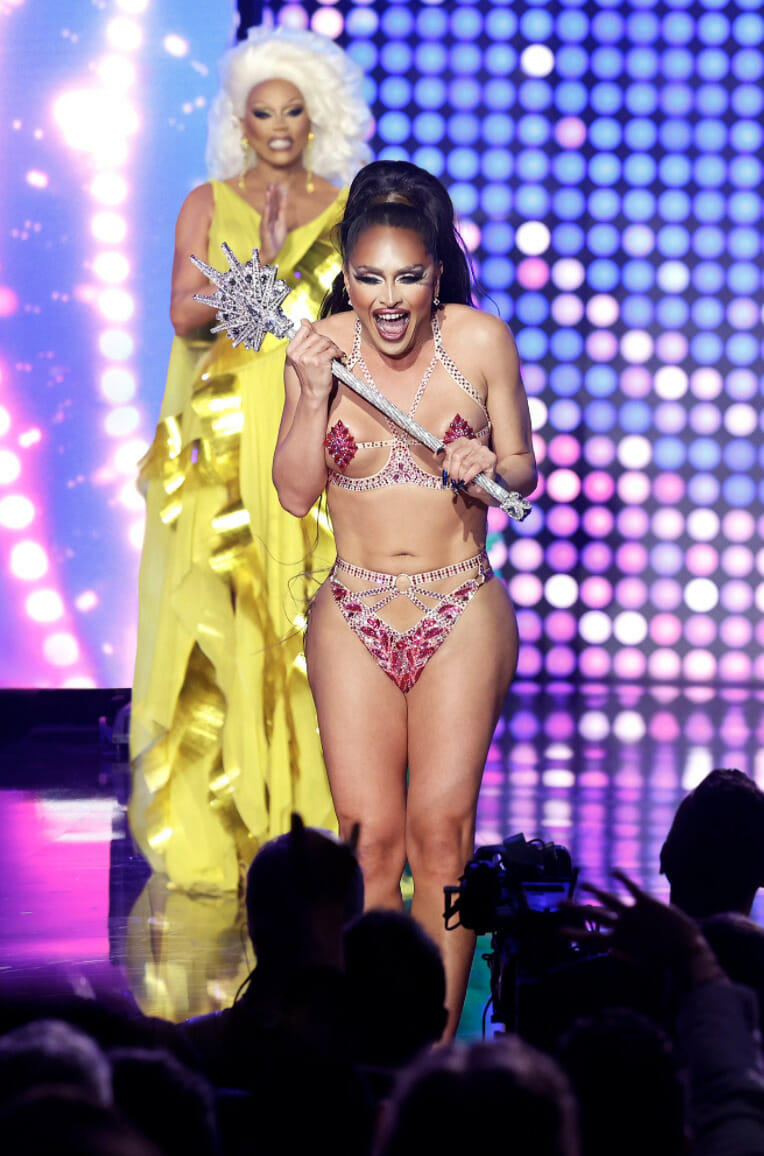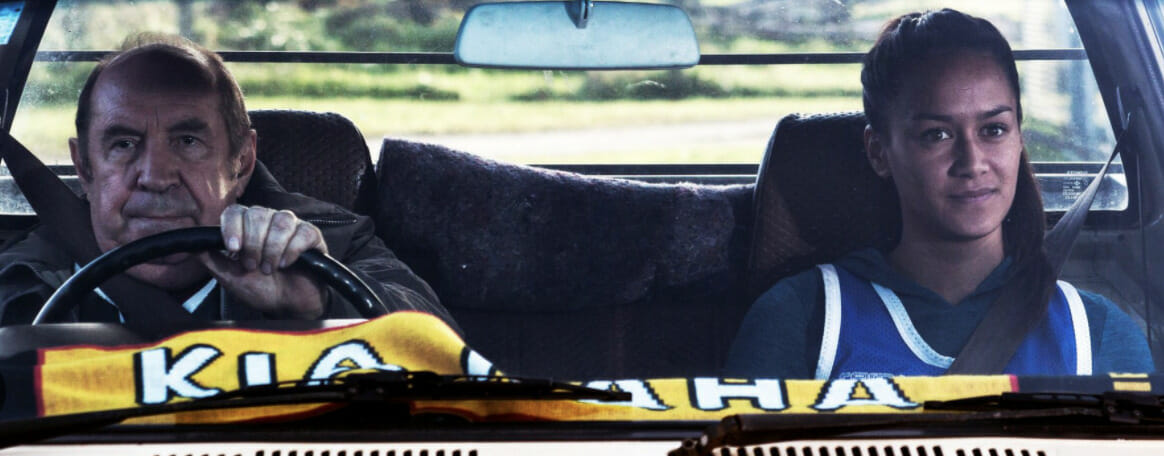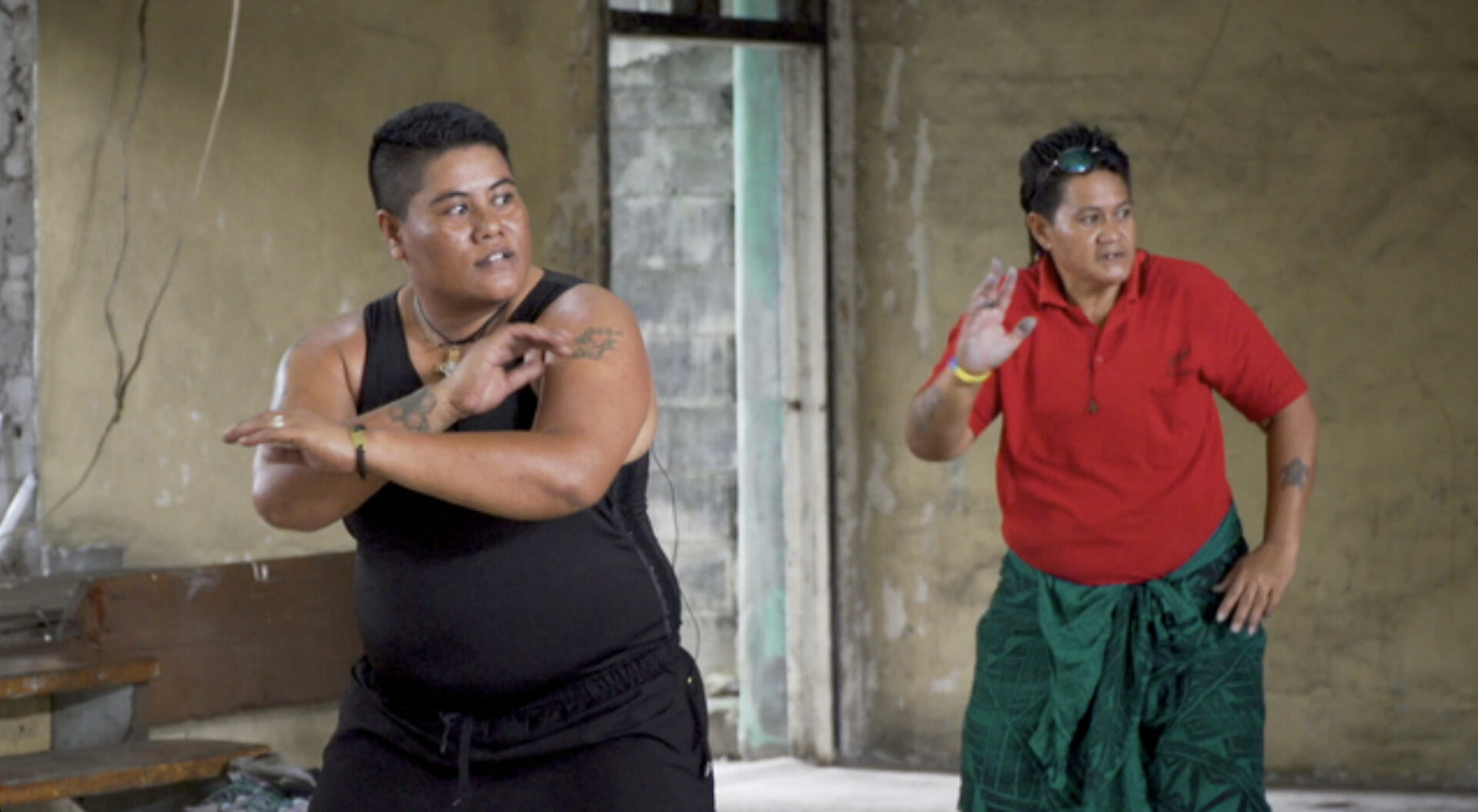By: Kristian Fanene Schmidt, Contributing Writer & Kayla Thompson, Communities of Color and Media Junior Associate
Since 1992 in the United States, Asian American and Pacific Islander (AAPI) Heritage Month has been observed and celebrated during the month of May.
This May, GLAAD is dedicated to honoring the cultural contributions and influences LGBTQ+ AAPI community members have made, alongside highlighting films, TV shows, and other forms of media with significant LGBTQ+ AAPI representation.
While celebrating AAPI Heritage Month, it’s important to specifically uplift and include the voices, stories, and faces of LGBTQ+ Native Hawaiians and Queer and Trans Pacific Islanders (QTPI), as Native Hawaiian and Pacific Islander representation is often left out of the conversation and particularly lacking on-screen.
In addition to the lack of on-screen representation, there is also a lack of knowledge surrounding queerness in the Pacific, which has always been manifold. While homophobia and transphobia have been present in cultures across the Pacific, there is also a long history of diversity regarding gender identity, gender expression, and sexuality in numerous Pacific societies.
With the understanding that many Pacific people don’t identify with western identity terms and colonial imposed labels, Phylesha Brown-Action, the Executive Director and Co-Founder of Fine Pasika, coined the term MBPFAFF+.
MVPFAFF+ stands for the Mahu of Hawai’i, Vakasalewalewa of Fiji, Palopa of Papua New Guinea, Fa’afafine of Samoa, Akava’ine of The Cook Islands, Fakafifine of Niue, Fakaleiti or Leiti of Tonga, and other Pasifika gender expressions and sexualities.
While these identities have not historically been afforded the same visibility and amplification among LGBTQ communities, an emergence of Pasifika, MVPFAFF+, and ally filmmakers and creatives are working to correct colonial narratives surrounding the Pacific and are driving equitable, perspective-centered, and uplifting depictions of the community.
With help from Kristian Fanene Schmidt, we’re sharing below a list of some of the films and television shows that are dedicated to QTPI and MVPFAFF+ representation and inclusion:
RuPaul’s Drag Race Season 15 (2023) – Philo
Queens like Kween Kong (of Tongan/Samoan descent) and Brita Filter (of Tongan descent) have appeared on RuPaul’s Drag Race in previous years, and put on stunning performances. In 2023, for the first time in the history of the show, a Pacific Islander finished in first place, as Sasha Colby, a Native Hawaiian trans model and activist, took home the crown.

Born To Dance (2015) – Vendetta Films
Born to Dance tells the story of Tu Kaea, portrayed by champion hip hop dancer Tia-Taharoa Maipi when he is given the opportunity to audition for K-Crew, the best hip hope crew in the country, at the expense of his old crew.
Kumu Hina (2014) — Tubi
Documentary “Kumu Hina” follows the life of Hinaleimoana Kalu-Wong, a Native Hawaiian activist and teacher. The show documents her experiences as a mahu, exploring her role as a spiritual and cultural leader and navigating a world in which she seldom finds acceptance. Viewers are also able to see Hina in a loving relationship, documenting a tenderness and visibility that is not often afforded to MVPFAFF+ communities.
Leitis in Waiting (2018) — Plex
“Leitis In Waiting” documents the journey of Tongan fakaleiti/leiti activist Joey Joleen Mataele, with one of the directors being the aforementioned Kumu Hina. The film captures her leading the charge for transgender rights in the Kingdom of Tonga, as Joey is the founder of the Tongan Leitis Association (TLA).
Next Goal Wins (2014) — Apple TV
The 2014 documentary Next Goal Wins chronicles the events leading to the American Samoan national soccer team’s largest match. Jaiyah Saelua, the first openly non-binary and trans woman to compete in a FIFA world cup qualifier, serves as part of the squad. A feature film adaptation with the same name, Next Goal Wins, is set for release later this year, and will star fa’afafine actress Kaimana in the role of Saelua.
Tits On A Bull (2014) – Vimeo
Centering a Maori women’s rugby team, Tits on a Bull follows Phoenix (Ngawaea Taia), the young star player, as she struggles to choose between her longtime friendship with aging coach Rusty (Roy Billing) or her new relationship with lesbian team-captain, Mel (Maria Walker).

Kama’āina (Child Of The Land) (2020) – Vimeo
Kama’āina (Child Of The Land) tells the story of a queer sixteen-year-old girl, Mahina (Malia Kamalani Soon). Mahina navigates life on the streets, eventually finding refuge at the Pu’uhonua o Wai’anae – Hawaiʻi’s largest organized homeless encampment run by Aunty Twinkle. The film, which is beautifully shot, demonstrates that the answer to Hawaiian issues will always come from the community itself, and not from outside, intervening, non-Hawaiian forces.
Other People (2019) – NMG Network
“Other People” is a short film written and directed by Bryson Chun that follows the final moments of a couple’s relationship. The short was chosen as a 2019 ‘OHINA Showcase Selection by ‘OHINA FILMS, a Hawai‘i-based collective of producers, directors, crew members, and creative talent on-island to help short film concepts that have been created and written during the ‘Ohina Filmmakers Lab Intensive.
The Rogers (2022) – YouTube
While the fa’afafine community has been visible in Samoa for some time, The Rogers offers an intimate glimpse into the lives of the first visible group of fa’atama (trans men) in the Pacific: the Rogers of Samoa.

Two Idiot Girls – Spotify
Comedy podcast “Two Idiot Girls,” is co-hosted by Samoan Deison Afualo, along with her sister Drew. On “Two Idiot Girls,” Deison shares her perspective shaped by her experiences as a young queer Pasifika woman.












